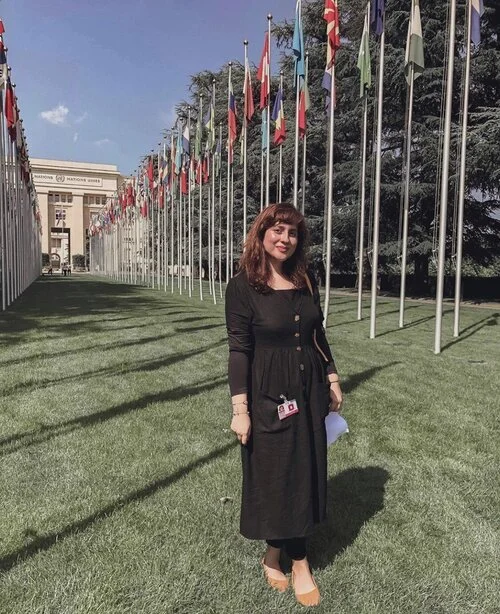On 29 June 2020, Haacaaluu Hundeessa, a prominent singer and activist, was shot dead by unknown attackers in Addis Ababa, Ethiopia. Over 160 people have since been killed in violent protests as a result of the increasing tensions between security forces and the Oromo people. The protests are reminiscent of the anti-government demonstrations which took place between 2015 and 2018, where Oromo people deployed non-violent tactics to raise awareness about their mistreatment by the Ethiopian government.
HAACAALUU HUNDEESSA AND THE OROMO PEOPLE
Historically, the Oromo people, a Cushistic Indigenous nation, have been subject to systemic marginalisation, extrajudicial killings, discrimination, limitations on freedom of movement, and arbitrary imprisonment. They have had inadequate representation in the Ethiopian central government and have faced restrictions in their use of language, literature and media. Despite being one of the largest ethnic groups in the country, they have been denied equal access to the country’s resources, including the political sphere, education, and employment.
The Oromo Movement arose as a national liberation struggle to reclaim Oromo heritage, in clear opposition to Ethiopian settler colonialism and its “institutions that denied Oromos historical space or autonomous cultural, political, and economic development.”
Hundeessa belonged to the Oromo group. His music had a significant impact on the Oromo community, often becoming anthems which symbolised the Omoro struggle for political freedom in the anti-government protests in 2015 and 2018. Awol Allo, lecturer at Keele University writes: “[Hundeessa] had the rhetorical facility and the poetic expression with which he was able to articulate and insightfully identify some of the deeply entrenched and profoundly rooted problems that the Oromos have been facing throughout history.”
The killing of Hundeessa has been marked as the reopening of old wounds for the Oromo people. It came one week after he had condemned the government’s treatment of the Oromo people in a nationally broadcast interview.
WHAT ARE THE PROTESTORS DEMANDING?
Following the killing of Hundeessa, a new wave of protests organised by underground activist networks broke out in Ethiopia. Security forces responded by firing live bullets at unarmed protesters. The Oromo people, under the leadership of Ethiopia’s National Youth Movement for Freedom and Democracy (better known as The Qeerroo) and the Oromo Liberation Front, have been “campaigning for a new political and economic arrangement in the country.” The protestors are demanding that Hundeessa’s killers be brought to justice, and that the Ethiopian government recognise the right of Oromo people to self-determination. They are also demanding the immediate release of over 7,000 political activists who were arrested during the demonstrations. The Oromo Movement emerged with these demands in an attempt to mobilise the Oromo community and awaken the political conscience of the Ethiopian state.
As of 3 August 2020, the Oromo protesters have launched a civil disobedience campaign calling for an end to the systematic human rights abuses conducted by the Ethiopian government. This campaign also attempts to raise awareness about the treatment of Oromo people, in the hope that international condemnation will pressure the Ethiopian government to change.
NO JUSTICE, NO PEACE
It is important to keep in mind that the new waves of protest by the Oromo people are a continuation of many years of struggle for self-determination. Whilst being heavily restricted in their homeland, the Oromo people have been aptly relying on social media to vocalise their objection to persecution by the Ethiopian government. It is crucial that we sign petitions, raise awareness, and use our social media platforms to express our condemnation of the state’s violence against the Oromo people.
Hundeessa used his voice to sing truth to power. He expressed his objection to Abiy Ahmed’s leadership and shared his “subtle and painful narrations about the reality of the Oromo experience within the Ethiopian state.” Whilst his death is undoubtedly a great loss for the Oromo people, it also serves as a potent reminder of the long battle towards justice and liberation that must be fought.
Amara is in her final year of a Bachelors of Laws and Communication majoring in Social and Political Sciences at the University of Technology, Sydney. She is incredibly passionate about human rights and social justice and intends to pursue a career in international human rights law in the near future.

